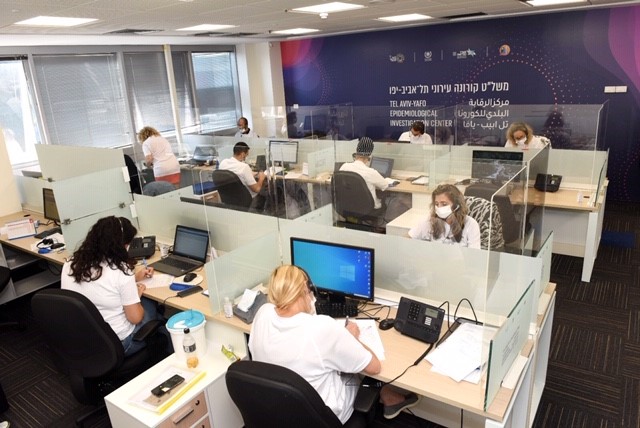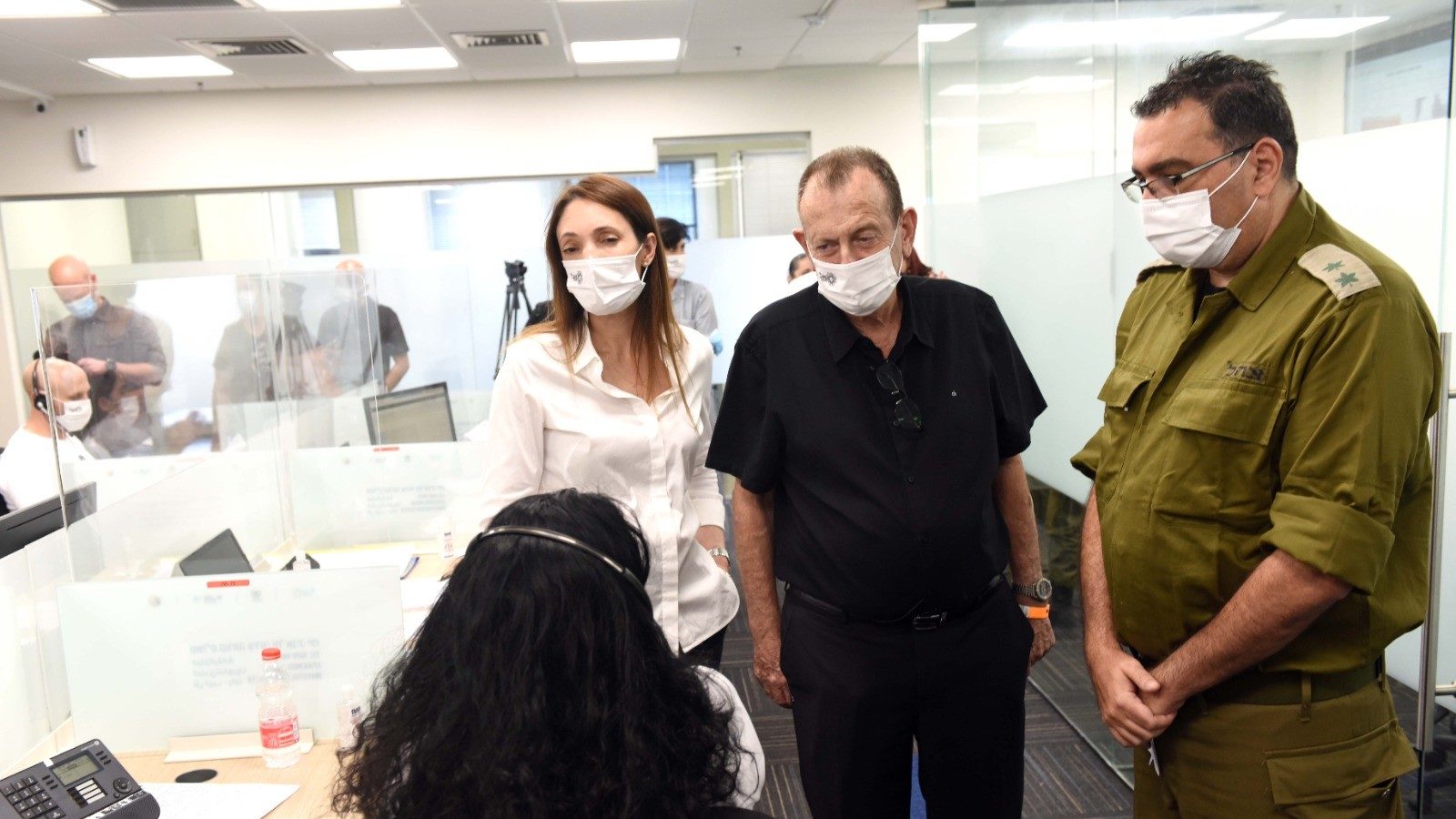Tel Aviv Opens Corona Contact Tracing Center
Municipalities are joining in the epidemiological investigation effort
The Tel Aviv-Yafo Municipality is opening a COVID contact tracing center as local governments across Israel prepare to take part in the effort to identify possible carriers of the novel coronavirus.
The new center, located in two buildings in bustling central Tel Aviv, reflects a recent change in strategy by the central government to permit municipalities to join the contract tracing effort. Israel had been relying on the Health Ministry and the Israel Defense Forces Home Front Command to notify people who may have been exposed to COVID-19, so they can be ordered to self-isolate for 14 days.
“Up until now, the city was not authorized to be part of this effort and Mayor Ron Huldai along with others put pressure on the government to increase the numbers [of people involved],” municipal spokesperson Eytan Schwartz told The Media Line.
One hundred workers from the municipality and post-high school volunteers will all receive the same training, beginning on October 6 and ending three days later.
In order to stop the spread, they must enter quarantine as soon as possible
Sharon Blum Melamed, the director of the Tel Aviv-Yafo Municipality’s social services and a leader in the city’s efforts to combat the virus, said 120 people will begin work next week, although this number may change based on future needs. The two facilities will work two shifts, seven days a week, following the safety guidelines set by health authorities.
“The Health Ministry can’t identify all the new cases of COVID; with the combined resources of the IDF, the Health Ministry and the municipality, we [can better stem] the spread,” Blum Melamed told The Media Line. “The new approach is how we can work together in the most efficient way possible.”
She said that the municipality will be responsible for dealing with those who may have been exposed to newly diagnosed patients in the city, which has a population of about 500,000, including noncitizens. The Health Ministry will have a bigger role in tracking foreigners than with citizens.
“We will call patients newly diagnosed in the last 24 hours and ask whom they met with. Then we call those people and ask them for the names of all the individuals they interacted with. In order to stop the spread, they must enter quarantine as soon as possible,” Blum Melamed said.
People are asked whom they have been near in the prior five or 14 days, depending on Health Ministry guidelines that are based on the level and duration of exposure, for example, whether they saw the person for more or less than 15 minutes and whether they met outside or indoors.
Schwartz said that once a staffer becomes familiar with the tracing system, he or she should be able to carry out three to four “research cycles” a day.
“If you have 100 people working, the optimal number [of research cycles] is between 300 and 400 a day, once you’re trained and become more efficient,” he told The Media Line.
Contact tracing is decidedly low tech, with phones as the exclusive method for reaching people.

The newly opened municipal COVID contact tracing center in Tel Aviv, Israel (Kfir Sivan/Tel Aviv-Yafo Municipality)
“We trust people. We believe that they are going to tell us the truth most of the time,” Blum Melamed said.
She also said that people who must quarantine will not be left on their own if they need help, which should encourage people to be honest.
“We must be sure that after contract tracing, residents will get help from the municipality. For example, we will bring food and other essential items to those in need,” Blum Melamed said.
The municipality has done this since the start of the outbreak earlier this year.
“We are prepared for a situation where we need to feed thousands of families on a daily basis, but that is not the case now,” Schwartz said.
During the first wave of the coronavirus in March and April, tracking people with possible exposure was the purview of epidemiological nurses, of whom there are around 27 or 30 in the entire country.
Since this proved insufficient, more people will be performing aspects of contact tracing that do not require such a level of expertise.
“The contract tracing includes several components: receiving details, decision making, creating an integrated system that connects data arriving from hospitals and laboratories, Prof. Nadav Davidovitch, director of the School of Public Health at Ben-Gurion University of the Negev, told The Media Line.
“Sometimes I think there is confusion. … Students or other workers are only doing a small part of the contact, such as data collection. There are components of contact tracing that are quite routine and require a large amount of manpower, especially when there are so many cases,” he continued.
Contract tracing is extremely important if we want to [resume] our daily routine while the corona is still with us. It’s needed when you have a reduction in the number of cases and you want to move to the next stage of [reduced restrictions]. It’s difficult to follow the thousands of cases now, but as we move on after the lockdown, contact tracing will be even more important
Davidovitch said those performing such work need to be empathetic to the situation and create trust so that people are more likely to be forthright. In addition, there is a need for people who can speak different languages and understand the cultural sensitivities of certain groups.
The Tel Aviv effort includes people who can converse in Hebrew, English, Russian and Arabic.
While tracing the chain of coronavirus exposure is important now, it will be even more crucial when Israel is doing better in combating the virus, the professor said.
“Contract tracing is extremely important if we want to [resume] our daily routine while the corona is still with us. It’s needed when you have a reduction in the number of cases and you want to move to the next stage of [reduced restrictions],” Davidovitch said. “It’s difficult to follow the thousands of cases now, but as we move on after the lockdown, contact tracing will be even more important.”


